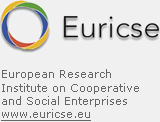It is a truism that a market economy cannot function without trust. We must be able to rely on other people to respect our property rights, and on our trading partners to keep their promises. The theory of economics is incomplete unless it can explain why economic agents often trust one another, and why that trust is often repaid. There is a long history of work in economics and philosophy which tries to explain the kinds of reasoning that people use when they engage in practices of trust: this work develops theories of trust. A related tradition in economics, sociology and political science investigates the kinds of social institution that reproduce whatever habits, dispositions or modes of reasoning are involved in acts of trust: this work develops theories of social capital. A recurring question in these literatures is whether a society which organizes its economic life through markets is capable of reproducing the trust on which those markets depend. In this paper, we look at these themes in relation to the writings of three eighteenth-century philosopher-economists: David Hume, Adam Smith, and Antonio Genovesi.
Bruni, L., Sugden, R. (2000). Moral canals: trust and social capital in the work of Hume, Smith and Genovesi. Economics and Philosophy 16(01), 21-45








